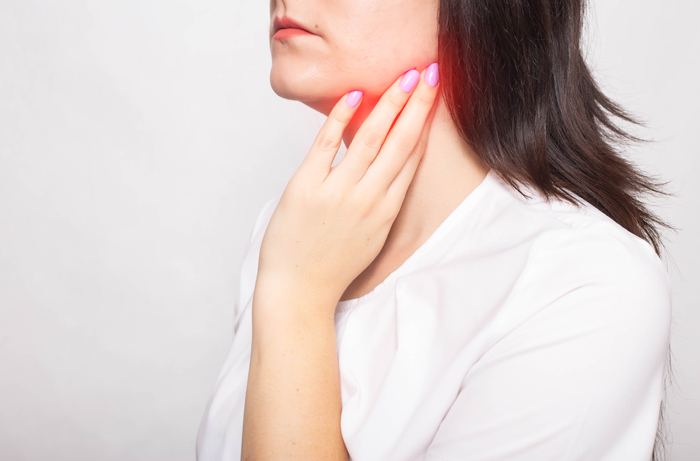Lymph Node Biopsy Treatment in Koramangala, Bangalore
A lymph node biopsy is a procedure that involves removing a lymph node or a portion of a lymph node for analysis under a microscope.
What is Lymph Node Biopsy?
A lymph node biopsy is a procedure that examines the lymph nodes for disease. Lymph nodes are tiny, oval-shaped organs found in the body.
Lymph nodes are part of your immune system that helps your body identify and battle infections. An infection anywhere in your body can cause a lymph node to swell. Swollen lymph nodes may appear as a lump underneath the skin.

What are the Symptoms of Swollen Lymph Nodes?
There are numerous lymph nodes in your head and neck. This region, as well as your armpits and groin, has lymph nodes that frequently swell.
Swollen lymph nodes indicate that something is wrong with your body. You will experience the following symptoms when your lymph nodes first swell:
- The lymph nodes are tender and painful.
- Upper respiratory infection symptoms include a runny nose, sore throat, fever, and other symptoms.
- Swelling in the lymph nodes can be the size of a pea or kidney bean or even larger.
- The lymph nodes in your body are swollen all over. When this happens, it may be a sign of an illness like HIV or mononucleosis or an immune system deficiency like lupus or rheumatoid arthritis.
- Hard nodes, set and rapidly developing, suggest cancer or lymphoma.
- Fever.
- Sweats at night.
What are the Causes of Swollen Lymph Nodes?
An infection, especially a viral infection like the common cold, is the most common cause of swollen lymph nodes. Swollen lymph nodes can also be caused by the following factors:
- Throat strep.
- Tuberculosis.
- HIV (Human Immunodeficiency Virus).
- Infected tooth.
- Measles is a contagious disease that affects children.
- Infections in the ears.
- Rheumatoid arthritis is a form of arthritis that affects the joints.
- Mononucleosis infections of the skin or wounds, such as cellulitis.
- Cat scratch fever is a contagious disease spread by cats.
- Lupus is a disease that affects the immune system.
Some Cancers Might Also Cause Swollen Lymph Nodes:
- Lymphoma is a type of cancer that starts in the lymphatic system.
- Leukemia is a blood-forming tissue cancer that affects the bone marrow and lymphatic system.
- Some tumors that spread to lymph nodes (metastasized)
What Should I Do to Get Ready for a Lymph Node Biopsy?
Tell your doctor about any drugs you're taking before your lymph node biopsy appointment. Non-prescription drugs, such as aspirin and other blood thinners and supplements, fall under this category. Let your doctor know if you have any drug allergies, latex allergies, or bleeding disorders. Also, women must let their doctors know if they are expecting.
Stop taking blood thinners, both prescription and over-the-counter, at least five days before your operation. Do not eat or drink anything for several hours before your biopsy appointment. Your doctor will give you more detailed guidance on how to prepare.
When Should You Consult a Doctor?
When the underlying disease, such as a mild infection, improves, some swollen lymph nodes return to normal. Consult your doctor if your swollen lymph nodes:
- Have emerged almost out of nowhere.
- Continue to grow or have been present for at least two weeks.
- When you push on them, they feel stiff or rubbery, or they don't move.
Request an appointment at Apollo Hospitals
Call 1860 500 2244 to book an appointment
Conclusion
A lymph node biopsy is a simple test that helps the doctor figure out why the lymph nodes are swollen. If you have any concerns about what to expect from your lymph node biopsy or the outcome, speak with your doctor. Inquire about any additional medical tests your doctor can recommend.
Despite the highest standards of care, all surgeries carry risks. Infection, bleeding, and tenderness around the biopsy site, and numbness caused by accidental nerve damage are some of the risks associated with a lymph node biopsy.
After a biopsy, pain and tenderness can last for a few days. When you get home, make sure the biopsy site is clean and dry. If you have symptoms of an illness or complications, such as a fever, chills, and swelling, call your doctor.
The removal of cancerous lymph nodes will help prevent cancer from spreading or returning. However, it can cause lymphedema, a disorder in which lymph fluid backs up in the area where a node used to be.
Symptoms
Our Doctors
DR. J G SHARATH KUMAR
MBBS, MS (GENERAL SU...
| Experience | : | 13 Yeras Experience |
|---|---|---|
| Speciality | : | General & Laparoscop... | Location | : | Koramangala |
| Timings | : | Mon to Sat : 8:30 AM... |
Our Top Specialities
NOTICE BOARD
CONTACT US
CONTACT US
 Book Appointment
Book Appointment



.svg)
.svg)
.svg)
.svg)








